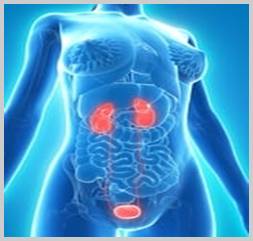Urinary Tract Infection
The urinary system includes the kidneys, ureters, bladder, urethra or prostate (in men). Urinary tract infections or UTI is a common infection that accounts for many visits to the doctor, urgent care and emergency rooms each year. Urinary tract infections can occur in the bladder and/or the urethra, and can develop anywhere in either of these areas. These infections occur much more frequently in women than in men and may cause intense pain, urinary frequency and bladder discomfort.
Causes of a UTI
Most urinary tract infections are the result of a bacterial infection, but may also develop as a result of:
● Use of diaphragm or condom with spermicidal agents
● Long-term use of a catheters
● Loss of estrogen due to menopause
● Sexually activity
● Inability to empty bladder
● Uncontrolled diabetes may cause a decrease in immune function causing some individuals to be more susceptible to urinary tract infections.
Symptoms of a UTI
A urinary tract infection (UTI) causes the lining of the bladder and urethra to become inflamed and irritated. Symptoms can range from mild to severe. The irritation can cause pain in the abdomen and pelvic area and may cause some of the following symptoms:
● Burning with urination
● Strong, constant urge to urinate
● Dribbling of urine
● Pelvic pain
● Fever
● Hematuria (blood in urine)
Diagnosis of a UTI
UTIs are diagnosed through a physical examination and a comprehensive review of symptoms. A simple urine test is also performed to detect the presence of bacteria in the urine. A urine culture will take a few days to receive results, but a urine dipstick can help to diagnose infections. In some cases, an ultrasound or CT abdomen/pelvis is performed to further examine the urinary tract.
Treatment of a UTI
Most urinary tract infections are treated with antibiotic medications. Somtimes an IV may need to be inserted for treatment. Pain medication may be prescribed to relieve the burning sensation while urinating (azo or pyridium). Patients are encouraged to drink increased water. Left untreated, a urinary tract infection may lead to kidney infections and cause permanent damage to the kidneys.
Prevention of a UTI
While not all urinary tract infections can be avoided, the following recommendations may help to prevent a UTI from occurring or decrease their incidence:
● Drink plenty of water to keep well hydrated
● Urinate after intercourse to flush bacteria
● Do not use contraceptives with spermicidal foam
● Use proper hygiene by wiping from front to back after using the bathroom
● Empty the bladder completely when urinating
● Do not hold urine for long periods of time
● Cranberry supplements

